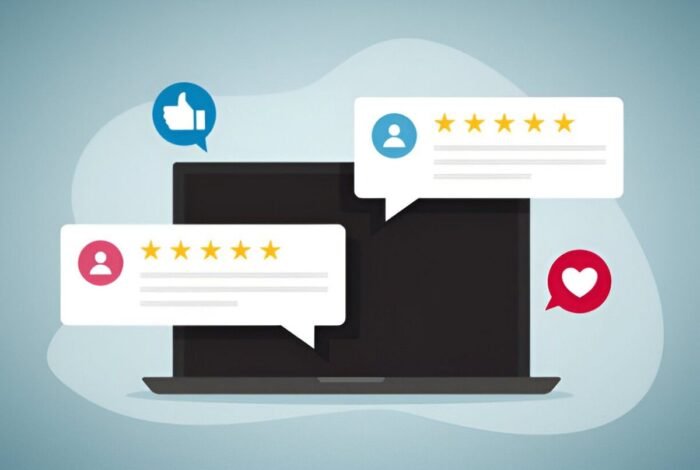When running a business, addressing customer complaints and collecting feedback is essential. These interactions help refine services and build trust. In my experience, choosing the right software can transform how businesses manage these processes. Today, I want to discuss some of the top software solutions available and help you find the best fit for your organization.
Why Managing Customer Feedback Matters
Customer complaints and feedback are more than just data points; they’re opportunities. They allow you to:
- Understand what’s working and what’s not.
- Identify trends and recurring issues.
- Build customer loyalty through prompt action.
- Improve products and services.
The right software simplifies these tasks and ensures no feedback is overlooked. Let’s dive into some of the best options out there.
Criteria for Choosing Feedback Management Software
When evaluating software, I consider:
- Ease of Use: A steep learning curve can discourage staff from using the tool effectively.
- Customization Options: Your business needs may be unique, so the software should adapt to those requirements.
- Integration: The tool should connect seamlessly with existing systems like CRMs or email platforms.
- Reporting Capabilities: Detailed reports help in analyzing trends.
- Scalability: It’s crucial that the software grows with your business.
- Cost: While not the only factor, affordability matters, especially for small businesses.
Below, I’ve reviewed the top tools based on these criteria.
Top Customer Feedback Management Software
1. Zendesk
Zendesk is well-known in customer service circles. It combines complaint management and feedback collection into one platform.
Key Features:
- Centralized ticketing system.
- AI-powered chatbots.
- Customizable feedback forms.
- Multi-channel support (email, social media, live chat).
Pros:
- User-friendly interface.
- Extensive integration options.
- Scalable for businesses of all sizes.
Cons:
- Can get expensive for larger teams.
- Limited features in the basic plan.
Best For: Medium to large enterprises looking for an all-in-one solution.
2. HubSpot Service Hub
HubSpot Service Hub is part of the broader HubSpot ecosystem, making it a great choice if you’re already using their CRM or marketing tools.
Key Features:
- Customer feedback surveys.
- Ticketing and automation tools.
- Knowledge base creation.
- Reporting dashboards.
Pros:
- Intuitive design.
- Strong integration with other HubSpot tools.
- Excellent customer support.
Cons:
- Limited functionality in the free version.
- Add-ons can increase costs.
Best For: Businesses already using HubSpot products.
3. Freshdesk
Freshdesk stands out for its affordability and robust features. It’s especially popular with small businesses and startups.
Key Features:
- Omnichannel support.
- AI-driven automation.
- Gamification to boost agent performance.
- SLA management.
Pros:
- Affordable pricing.
- Easy to set up and use.
- Strong automation capabilities.
Cons:
- Limited reporting in lower-tier plans.
- Customization options could be better.
Best For: Small businesses and startups.
4. Qualtrics XM
Qualtrics XM focuses on experience management, making it ideal for in-depth feedback analysis.
Key Features:
- Advanced survey tools.
- Predictive analytics.
- Integration with CRM platforms.
- Actionable insights through AI.
Pros:
- Comprehensive reporting.
- Tailored for enterprise needs.
- Strong focus on analytics.
Cons:
- Expensive.
- Steeper learning curve.
Best For: Enterprises focused on customer experience.
5. Salesforce Service Cloud
Salesforce Service Cloud integrates seamlessly with the Salesforce CRM, offering powerful tools for managing customer interactions.
Key Features:
- Automated workflows.
- Omni-channel routing.
- AI insights.
- Knowledge management.
Pros:
- Deep CRM integration.
- Highly customizable.
- Excellent scalability.
Cons:
- High cost for small businesses.
- Complex setup process.
Best For: Businesses already using Salesforce CRM.
Comparison Table
| Feature | Zendesk | HubSpot Service Hub | Freshdesk | Qualtrics XM | Salesforce Service Cloud |
|---|---|---|---|---|---|
| Ease of Use | 4/5 | 4.5/5 | 5/5 | 3.5/5 | 3.5/5 |
| Customization | 4/5 | 4/5 | 3.5/5 | 5/5 | 5/5 |
| Reporting | 4.5/5 | 4/5 | 3.5/5 | 5/5 | 5/5 |
| Price | Medium | Medium | Low | High | High |
| Scalability | High | Medium | Medium | High | High |
| Integration | High | High | Medium | Medium | High |
Key Takeaways
After reviewing these options, it’s clear that there’s no one-size-fits-all solution. Zendesk and HubSpot are excellent for all-in-one platforms, while Freshdesk offers value for smaller businesses. If analytics is a priority, Qualtrics XM or Salesforce Service Cloud might be worth the investment.
My Recommendation
For businesses just starting, I’d recommend Freshdesk for its balance of features and affordability. For larger organizations or those already using Salesforce or HubSpot, it’s best to stick with tools that integrate seamlessly into your existing ecosystem.
Ultimately, the best tool is the one that aligns with your needs and budget. Invest time in testing different options before making a decision. A robust system for managing complaints and feedback can make all the difference in your customer relationships and overall success.





